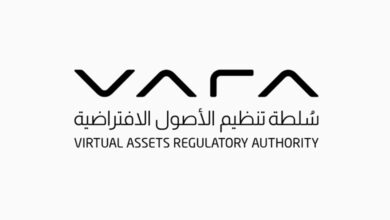On-Chain Governments: A Global Surge Toward Fiscal Transparency

As calls grow louder—like Binance co-founder Changpeng “CZ” Zhao urging that “all governments should track all their spending on the blockchain — an immutable public ledger”—we’re seeing an emerging global trend: governments exploring blockchain to enhance transparency, efficiency, and accountability in public finance. From Asia to Europe and the Americas, nations are exploring blockchain to revolutionize how they manage and report public funds.
Philippines: Tracking Every Peso
At the recent Manila Tech Summit, Senator Bam Aquino ignited headlines by proposing that the Philippines’ national budget be recorded on a blockchain platform—potentially making every peso spent traceable in real time.
“As far as I know, no one is crazy enough to put their transactions on blockchain, where every single step of the way will be logged and transparent to every single citizen. But we want to start,” Aquino declared, highlighting both the audacity and aspiration behind the move. If enacted, this would position the Philippines as a global pioneer in on-chain fiscal governance.
At present, no formal legislation has been filed, but the initiative builds on a live blockchain system implemented by the Department of Budget and Management (DBM)—the first in Asia. This system, powered by BayaniChain and built on Polygon’s Proof-of-Stake network, already logs key budget documents like Special Allotment Release Orders (SAROs) and Notices of Cash Allocation (NCAs). BayaniChain’s co-founder emphasized that while blockchain isn’t a cure-all for corruption, it “creates immutable records that enhance accountability.”
Guinea-Bissau: Real-World Implementation in Action
This isn’t just a theoretical trend—Guinea-Bissau has already deployed blockchain to manage its public wage bill. Launched in May 2024 under an IMF-supported program, the ledger tracks salary and pension data for over 26,600 civil servants and 8,100 retirees in near-real time. It flags discrepancies, enables efficient auditing, and builds trust. Notably, the wage burden dropped from 84% to 53% of tax revenue—a significant fiscal shift.
The US Joins the Trend—Blockchain for Economic Data
Meanwhile, across the Pacific, the U.S. Department of Commerce announced plans to publish official statistics—including GDP figures—on the blockchain. Speaking during a White House cabinet meeting, Commerce Secretary Howard Lutnick framed it as part of a broader push to modernize government transparency: “We’re going to put our GDP on the blockchain so people can use it for data and distribution,” he said, noting that expansion to other departments could follow once implementation details are refined.
Brazil: Transparent Public Procurement
Brazil has also embraced blockchain for government spending oversight. The state of Bahia developed the Online Bidding Solution (SOL), a blockchain-based platform for public procurement. SOL ensures that all bidding and procurement processes are transparent, auditable, and secure, helping to prevent mismanagement and corruption in public contracts.
This initiative highlights how blockchain can streamline the allocation of government funds, making complex spending processes more transparent and accountable.
Regional Echoes of On-Chain Governance
United Arab Emirates: Modernizing Government Transactions
The United Arab Emirates is taking blockchain adoption to a national scale with its Emirates Blockchain Strategy 2021, which includes transforming government transactions into a digital, verifiable format. While the initiative covers multiple public services, it has a strong focus on government financial operations and spending transparency, ensuring that funds move efficiently and securely across departments.
With a goal to digitize 50% of government transactions, the UAE demonstrates the potential for blockchain to modernize national financial infrastructure while providing citizens and auditors with a clear, trustworthy view of public spending.
Jordan: National Blockchain Network for Government Services
Jordan has integrated blockchain technology into its public services to increase transparency and accountability. The Ministry of Digital Economy and Entrepreneurship (MODEE) launched the Distributed Ledger Technology (DLT) platform, “Sanad,” to provide a decentralized and verifiable digital record of all transactions. This initiative aims to bolster digital trust and streamline the integration of e-government services.
Why It Matters—Opportunities and Challenges
Opportunities:
- Transparency & Trust: Blockchain’s immutable records offer unprecedented visibility into public spending—potentially reducing corruption and bolstering civic accountability.
- Efficiency Gains: Real-time data tracking can streamline audits, cuts down bureaucratic delays, and release funds faster.
- Global Influence: Guinea-Bissau’s success offers a proof-of-concept; the Philippines could craft a high-profile model for emerging and developed nations alike.
Challenges:
- Legislative Hurdles: Institutional resistance and technical literacy gaps may delay adoption. Aquino’s proposal still requires formal submission and political alignment.
- Technical Integration: Scaling these systems across diverse government agencies demands robust infrastructure and interoperability.
- Public Engagement: Citizens and civil servants must understand and trust the technology—not just its potential.
5. Global Momentum—A Tectonic Shift in Governance
From Africa to Asia to North America, blockchain is emerging as more than a fintech buzzword—it’s becoming a tool of modern governance. Other use cases across the globe include:
Estonia, UAE, Georgia, Sweden, Canada
These countries have adopted blockchain across government services—from e-residency and land registries to identity management, public procurement, and e-governance solution
Indonesia
Exploring blockchain to secure budget disbursements for programs like school meal subsidies, helping to mitigate risks like fake procurement or delivery failures.
Germany & UK
The UK is considering issuing “digital gilts” (blockchain bonds), though with some resistance from financial regulators, as reported by the Financial Times. Germany’s Future Financing Act even recognizes blockchain for issuing electronic securities.
This cross-regional convergence suggests that blockchain might be transitioning from experimental tech to foundational infrastructure for public finance.
Heading Toward an Inflection Point
Will the Philippines become the first nation to fully publish its national budget on-chain? Will real-time government data become the norm rather than a novelty? The answers will depend on whether these pilot experiments evolve beyond symbolic gestures into systemic transformations.
If handled wisely, blockchain-based budgets could form the backbone of a new era of decentralized fiscal transparency—where public trust is not presumed but algorithmically assured.





